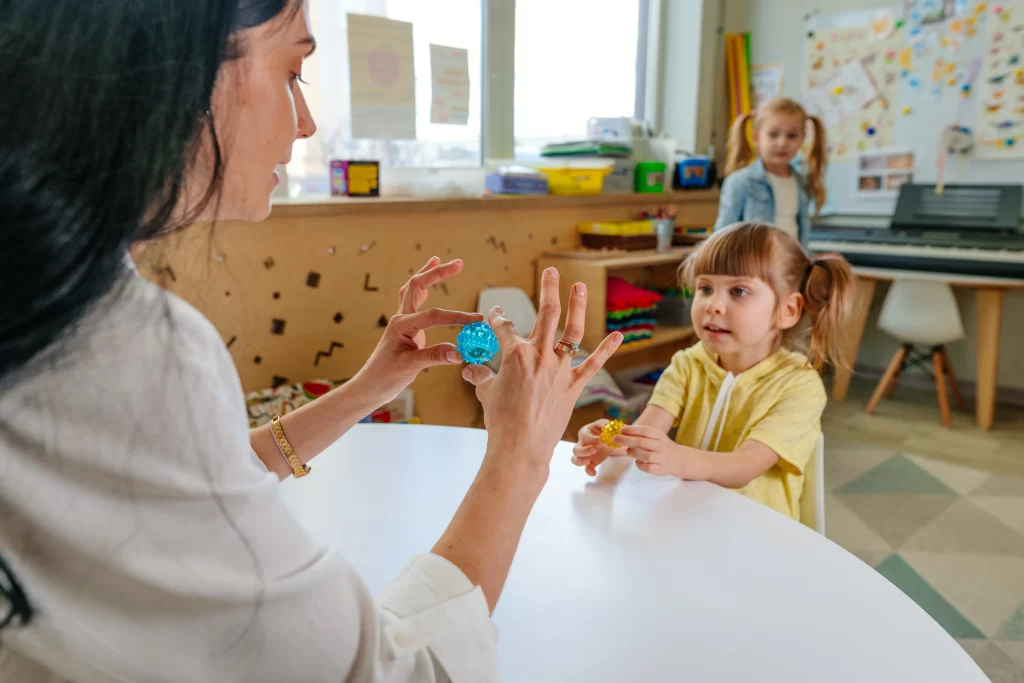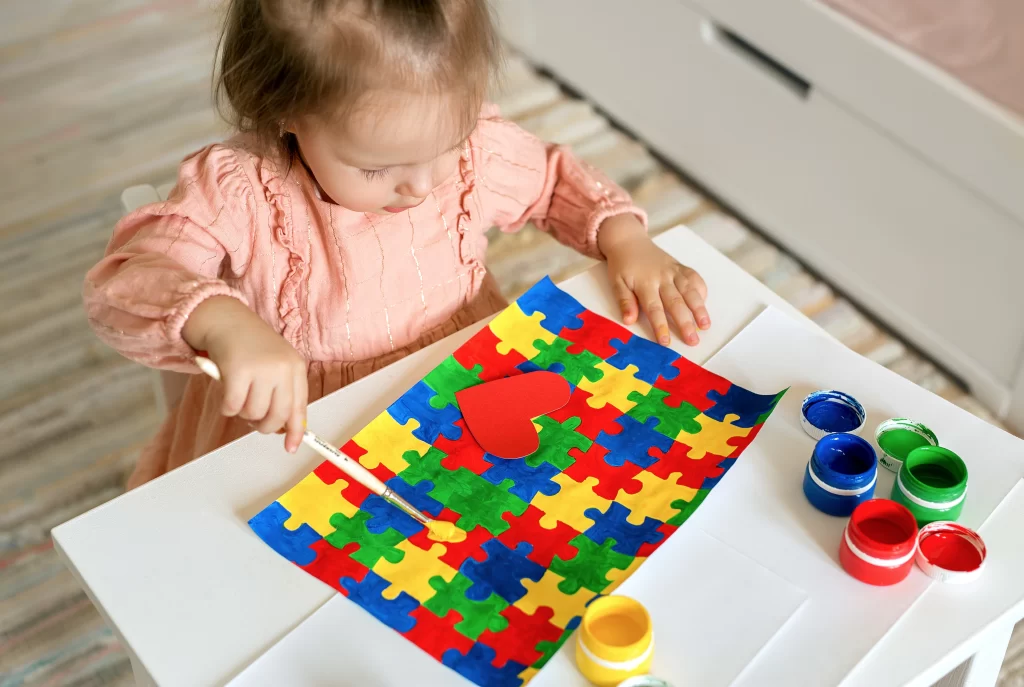Understanding Global Developmental Delay (GDD)
Global developmental delay (GDD) is when children take longer to reach certain milestones than other children of the same age. Significant developmental delays occur and may appear in two or more domains, including motor skills, speech and language, cognitive abilities, and social and emotional development. Data shows that GDD affects about 1-3% of the population in the UK.
It is essential to make a distinction between the terms “development” and “growth”, especially when explaining global developmental delay. A child’s growth refers to growing, increasing in size and often relates to appearance only. On the other hand, development refers to improved cognitive and physical skills that children learn as they grow.

Children with developmental delays may have communication and language skills difficulties, such as learning and understanding spoken languages or expressing themselves. They may also have difficulty developing gross motor skills like walking, running and even fine motor skills like grasping utensils and other objects. Sometimes, children over five years old may start experiencing intellectual disabilities. The causes of global developmental delay can vary and may include different factors such as brain injuries, genetic causes, neurological conditions and environmental factors. The treatment usually involves various types of speech and language therapy, physical therapy, occupational therapy and early intervention services.
Impact of GDD on Cognitive, Motor, Social, and Language Development
Children and babies develop specific skills and abilities at predictable ages, with developmental patterns, although each person grows at a different pace. However, children with global developmental delay develop skills at a later age than expected. The development of children can be divided into four main areas:
- Motor skills – the development of fine and gross motor skills
- Speech and language – learning how to babble, imitate speech, imitate sounds and understand what people are saying
- Cognitive skills – the ability to learn and process new information, organise information and remember new things
- Social and emotional skills – interacting with others and developing feelings as well as personal traits
A child’s developmental milestones are set within a timeframe of when the child is expected to reach them. Children who don’t reach two or more milestones in these areas of development are considered to have global developmental delays. Also, for some babies, GDD is suspected shortly after birth because of feeding difficulties, birth complications and low muscle tone. A healthcare professional should identify global developmental delays, and with proactive support, children can learn necessary life skills and lead a fulfilled life.
Autism Spectrum Disorder (ASD)
Autism is a neurological difference that affects how people think, perceive the environment and interact with others. It also affects how people communicate with the world around them. It affects approximately 1% of the global population, varying across regions and communities. The term “spectrum” reflects the wide variability in how autism manifests, ranging from people with multiple support needs to people leading independent lives.
Autistic people have unique interests and skills, and it is one of the lifelong developmental differences. However, describing autism adequately can be quite complex, as there are a lot of misconceptions, such as that all people with autism share the same challenges, which we know is untrue because everyone is different and unique.
Overlapping Features and Shared Challenges
While global developmental delay and autism share certain signs and it’s important to remember they are different and not the same. However, autistic people may have some degree of GDD, but people with GDD don’t always experience autism.
Some of the similar characteristics autism and GDD share include:
- Difficulty focusing or focusing intensely on one thing
- Language skills difficulties
- Avoiding eye contact
- Difficulty with social communication
- Hyperactivity
- Executive functioning challenges
People can overcome challenges and improve their overall well-being and contentment with compassionate and proactive support and care..
Key Differences Between GDD and Autism
Global Developmental Delay (GDD) and autism are both neurodevelopmental conditions that can manifest in early childhood. While they may present overlapping features, we must recognise their key differences to offer the right support.
For example, GDD typically doesn’t occur with other conditions, while autism occurs with co-occurring conditions. GDD may go unrecognised for several years, while autism can be masked in high-functioning autistic people. Also, GDD may involve more physical attributes and fine motor skills, while autism can create difficulty understanding emotions, body language or expressions.
To help you understand the distinctions between Global Developmental Delay and autism, we have organised the key differences into the illustration below.

Sharing is caring. You can download this infographic for free and share it with your network.
Is GDD a Form of Autism?
Global developmental disorder is not considered a form of autism. GDD refers to significant delays in multiple developmental domains in children under five, while challenges in social communication characterise autism. However, a child can experience both GDD and autism, as the two conditions can co-occur.
Co-Occurrence of GDD and ASD
Research shows that 30-50% of children with autism also have GDD. Despite overlapping characteristics, such as delayed speech and motor skills, they are distinct: ASD primarily involves social and behavioural challenges, while GDD is a broader developmental delay.
Children with both neurological conditions may need a comprehensive treatment plan including speech, occupational, and behavioural therapy. Genetic and environmental factors can contribute to the co-occurrence, and both conditions may involve irregular brain development.
Support for GDD and ASD with Unique Community Services
At Unique Community Services, we support people with global developmental delay and autism, providing care tailored to their unique needs. We provide person-centred care for people in the comfort of their own homes, treating every person with compassion, loyalty and dedication.
Our clinicians are highly trained in Positive Behaviour Support (PBS) and recognise the importance of seeing, caring and understanding people who display behaviours of concern. We focus on people’s unique abilities and strengths to help them thrive and embrace their differences and experiences.
If you are looking for support for yourself or a loved one with global developmental delay or autism, contact us today.

